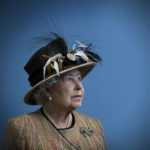I come from West Africa. It is a part of Africa where – like much of the continent – the concept of “tribe” is quite common. Tribal considerations influence many of life’s major decisions, from voting to church or denomination. Tribe is very often a factor that influences who people choose to marry.
It is not strange to find, for example, that a Kikuyu man in Kenya will want to marry a Kikuyu woman. A Xhosa in South Africa will likely marry another Xhosa, while an Igbo in Nigeria would want to stick with another Igbo. Until death do them part.
What Is my Tribe?
I often hear from older men, “Make sure to marry a fine girl from your tribe.” But the question that I find myself asking soon after is, “Why must I only marry from my tribe?”. Another question might be, “What is my tribe to begin with?”. I have a dual parentage. My father was Mbum, one of the ethnic groupings of North-western Cameroon. My mom, on the other hand, was Nso (pronounced “Nso-h”), a neighbouring clan to the Mbum. So, I do not see myself as fully Mbum or Nso, but as both. It gets even more complicated. My name, “Ngala”, is a typical Mbum name but I don’t speak my dad’s language. I only speak my mom’s, because I grew up for the most part in Nso.
Everyone believes they are inherently different from those in other tribes. These divisions were the reason for so many wars in Africa prior to colonisation. They are still the cause of much civil strife on the continent today
But I didn’t quite give much thought to the idea of tribe and how it influences daily life until I was in my late teens. I realised how entrenched and influential the idea is, despite the fact that most people living in sub-Saharan Africa look similar. Despite that fact, everyone believes they are inherently different from those in other tribes. These divisions were the reason for so many wars in Africa prior to colonisation. They are still the cause of much civil strife on the continent today.
An Identity Found in Shared Values
It is disappointing that people centre their identity around tribes instead of shared common values—even Christians. As Christians, it is paramount to identify as a follower of Christ before anything else (see Galatians 3:28). This identity in Christ should influence who we marry long before our tribe does.
It is disappointing that people centre their identity around tribes instead of shared common values—even Christians
As a Christian, Who should I Marry?
Doesn’t Song of Solomon recount the story of a mixed-race relationship? There is some consensus that the bride in the poem is a Shulammite while the bridegroom is an Israelite. She admitted, “I am dark yet lovely, daughters of Jerusalem, dark like the tents of Kedar, like the tent curtains of Solomon” (Song of Solomon 1:5). Though the book is poetic, we might argue that the bridegroom was at the very least much fairer than his bride (Song of Solomon 5:10). Yet in spite of their apparent racial or tribal differences they were married. Solomon adored her (Song of Solomon 1:15). To this example, we could add Boaz and the Moabite Ruth—a marriage in the line of David (Ruth 4:18-22) and of the Lord Jesus (Matthew 1:5).
Let me now offer four considerations for African Christians to bear in mind before marriage:
1. Love God Together
Having a spouse who loves God means that you both understand that God is the centre and purpose of life—not to mention your marriage. Without him, it won’t work. This might seem an extreme example but you can find a God-fearing spouse from Croatia, though you may be from Malawi. He might be more suited to you than a man from your village. In 1 Corinthians 7, Paul implies that marriage between a Christian and a non-believer is less than ideal. Practically, the challenges of such a situation are obvious. Following after Christ is difficult. A spouse who doesn’t love Jesus will only make that harder.
Following after Christ is difficult. A spouse who doesn’t love Jesus will only make that harder
2. Respect Each Other
Most African parents tend to counsel their children to marry from within their tribe. But this advice might neglect one of the core factors that lead to a successful marriage: respect. In Ephesians 5:33 Paul writes, “Let each one of you in particular so love his own wife as himself, and let the wife see that she respects her husband.” Though he is the head of the family (Ephesians 5:22-24), he is expected to respect his wife and love her sacrificially (Ephesians 5:25). Respect or submissiveness is mutual (Ephesians 5:21). But there is no one ethnic group or tribe that is predisposed to being more respectful than another. If your primary concern is tribe you may overlook character.
3. Share a Common Vision
The Bible says two cannot walk together unless they agree (Amos 3:3). This is true of marriage. While tribe tends to be the prime consideration for most Africans before they marry, it is important to ask how your future spouse’s vision for life fits with yours. If you base everything on tribe, your marriage could be headed for disaster before it has even begun. This might be like the unequal yoke that Paul speaks of when he admonishes Christians not be unequally yoked with unbelievers (2 Corinthians 6:14). It is safe to say that a believer and non-Christian will have very different visions for their lives. For starters, the former understands that all of life is for the glory of God. But even in the case that the prospective husband and wife are both Christians, they may have wildly incompatible ambitions or plans.
If your primary concern is tribe you may overlook character
4. Seek the Consent of Both Families
Ultimately, when two young people decide to get married, they must make their intentions known to their respective families. It is important to have the blessings of both families because families can work to undermine a marriage that they do not approve or support. The blessing of parents is desirable (see, for example, Genesis 24:49). However, their approval or disapproval should not be the sole basis on which a marriage happens or is called off. But because family remains a significant bond in African societies, prospective couples should desire agreement with their decision to marry. This may include negotiations around lobola which also require wisdom.
In the end, marriage is about reflecting Christ—it was designed by God to present the gospel
A marriage based on a love for God is both a testimony to the world and honouring to God. It is also worth noting that God made partners beautiful or handsome for each other, regardless of race or tribe. In the end, marriage is about reflecting Christ—it was designed by God to present the gospel (Ephesians 5:32). It doesn’t matter where the spouses come from or what they look like, as long as they love God. For those wondering who will make a perfect spouse, it is good to commit this into prayer and ask God to show you. While inviting counsel, we should let God and his directions guide us rather than being ruled by tribe, family and friends.














